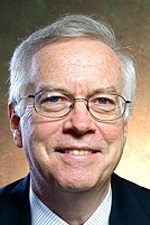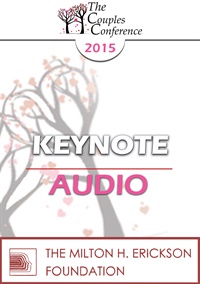CC15 Keynote 07 - Discernment Counseling for “Mixed Agenda” Couples - William Doherty, PhD
- Average Rating:
- Not yet rated
- Topic Areas:
- Couples Therapy | Keynotes | Multicultural | Therapist Development
- Categories:
- Couples Conference | Couples Conference 2015 | Pioneers in Couples and Family Therapy
- Faculty:
- William Doherty, PhD
- Duration:
- 48:19
- Format:
- Audio Only
- Original Program Date:
- Apr 26, 2015
- License:
- Never Expires.
Description
Description: What do you do with couples who are split on trying to working on their relationship or calling it quits? They are often poor candidate for traditional couples therapy but they are idea candidates for "Discernment Counseling," a creative way of working with couples our therapy models are not designed for. We will discuss the difference between couples therapy and discernment counseling.
Syllabus Description: What do you do with couples who are split on trying to working on their relationship or calling it quits? They are often poor candidate for traditional couples therapy but they are idea candidates for "Discernment Counseling," a creative way of working with couples our therapy models are not designed for. We will discuss the difference between couples therapy and discernment counseling.
*Sessions may be edited for content and to preserve confidentiality*
Credits
Handouts
| Timestamped Transcript (673.6 KB) | 13 Pages | Available after Purchase |
| Ericksonian Learning Snapshot (253.1 KB) | 2 Pages | Available after Purchase |
Faculty

William Doherty, PhD Related Seminars and Products
William J. Doherty is an educator, researcher, therapist, speaker, author, consultant, and community organizer. He is Professor and Director of the Marriage and Family Therapy Program in the Department of Family Social Science, College of Education and Human Development, at the University of Minnesota, where he is also an adjunct Professor in the Department of Family Medicine and Community Health.


